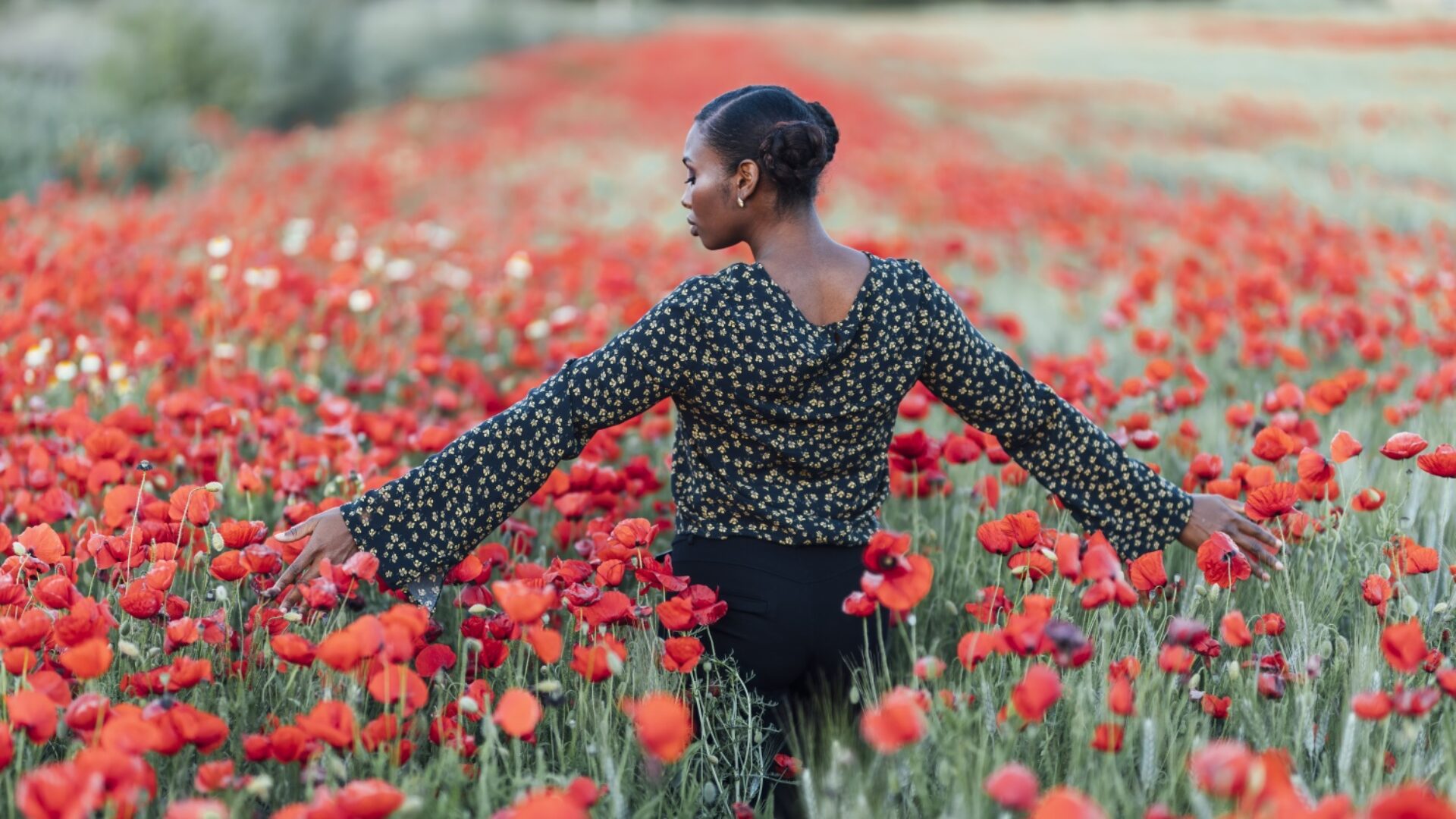
The realization that I was a “late bloomer” came to me when I was 17, as a senior in high school. I was at my locker preparing to go home when a large crowd formed in the hallway. I instantly knew exactly what was happening next – a promposal.
I was no stranger to the grand displays of affection that typically included flowers, signs and loving speeches. In fact, I loved them. However, there was something about this particular promposal that struck a nerve. Hours later, when I closed my apartment door, I felt like I couldn’t breathe. I walked straight to my mother and voiced the one question that I realized plagued me longer than I knew: Why am I not deserving of love?
For many “late bloomers,” that question has crossed their mind at one point in their lifetime. Ianthe Humphries, a 25-year-old influence marketer, shares a similar story. The realization also hit her during high school at the height of the promposal season. She described the feeling as a shift inside of her. Somehow, she knew that her life was going in a different direction than she assumed. “At that age, it was a lot of inward feelings,” Humphries tells GU. “In high school, it was more on what [I could] do to change the circumstance.”
Humphries went viral in 2023 on TikTok after posting a rant about her experience. The video has over 28,000 views and has become a safe space for her and others going through a similar situation. “It has been really reassuring because when we’re in our [social] circle, it’s very hard to think of the bigger picture,” she tells GU. “It was nice to have that sense of community.”
Licensed clinical social worker Aaliyah Nurideen defines the late bloomer as someone between the ages of 18 and 40 who feel like they haven’t reached romantic relationship milestones. According to a 2020 Pew Research Center study, 35 percent of single adults have never been in a committed relationship. The study noted that these singles typically were younger, with the median age being 24. Nurideen says that these individuals experience a feeling of lateness.
In a 2023 YPulse study focusing on Gen Zer’s dating habits, 29 percent of participants reported never being in a relationship. “[It] feels like your starting point is miles away from everyone else, [and] you have to sprint in a race where everyone is walking because they’re so far ahead of you,” Nurideen says. “It brings up this sense that there’s something out of your control, that you’re not able to reach this, [and] that you’re not worthy enough to get this.”
The term roots is not a new concept and extends to the 1950s with Psychoanalyst Erik Erikson’s theory on the stages of development. The psychologist believed that people either experience intimacy or isolation at this age. He determined that a person’s experiences in this stage will impact their future emotions and how they function in life.
For Humphries, the experience is always with her. When she was younger, it centered around her being the problem. She constantly wondered how she could change. As a 25-year-old, she is detached from thinking she is the issue. Instead, she wonders more about how this experience will impact her future.
Nurideen describes the internal and societal pressures that one may face as a late bloomer as “extremely distressing.” However, the latest trends give her hope for the future. Gen Z is shifting the dating culture, which she believes may impact the experience. With marriage rates reaching a 50-year low rate in 2021 and Gen Z’s redefinition of dating, the societal age markers for relationship milestones are shifting. “Late is not synonymous with never,” she says. “When we look at the dating culture, it’s changed. It’s affected commitment and relationship building. The priority now is just dating around [with] no real commitment.”
One of the most important things that Nurideen wants late bloomers to understand is that they’re not alone. In most cases, individuals feel isolated from their social circles because no one is going through a similar situation. Humphries admits that she didn’t connect with a friend who truly understood her situation until she was in college.
Online communities and social media platforms are becoming extremely helpful in creating a community for late bloomers. When navigating this space, Nurideen advises people to allow themselves to feel every emotion, break away from negative thoughts, and refrain from defining their lives through their dating experiences. She also advises them to look at all of the positive aspects instead of the negative.
As Humphries looks back on her experience, she is ultimately grateful for it. The journey has gifted her with a deep sense of independence and self-love. She is proud of the person she became and is even more excited for her future. “Blooming doesn’t have to be done with a romantic partner, [and] saying that I’m a “late bloomer” is arguing that I’m sitting here undeveloped, waiting for something to happen,” Humphries tells GU. “I would argue that I have bloomed already.”
About Kayla: Kayla Grant is a multimedia journalist with bylines in Business Insider, Shondaland, theGrio, Oz Magazine, Prism, Rolling Out and more. She writes about culture, books and entertainment news. Follow her on Twitter: @TheKaylaGrant.